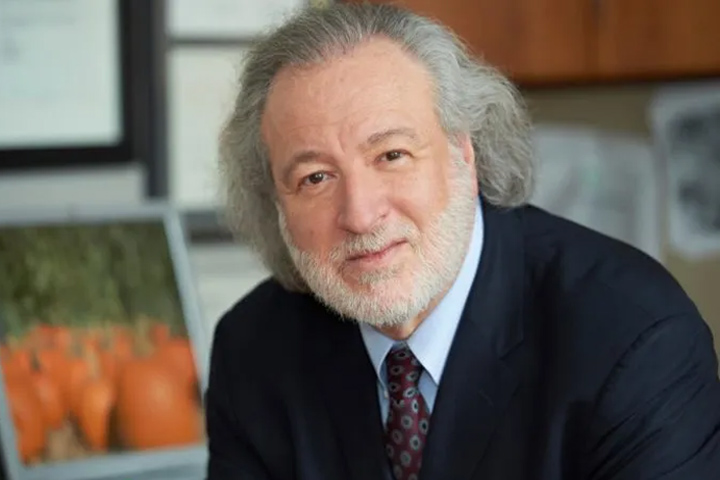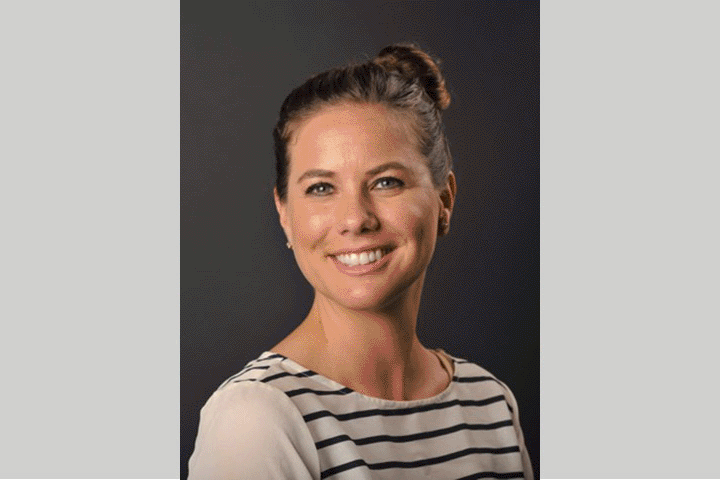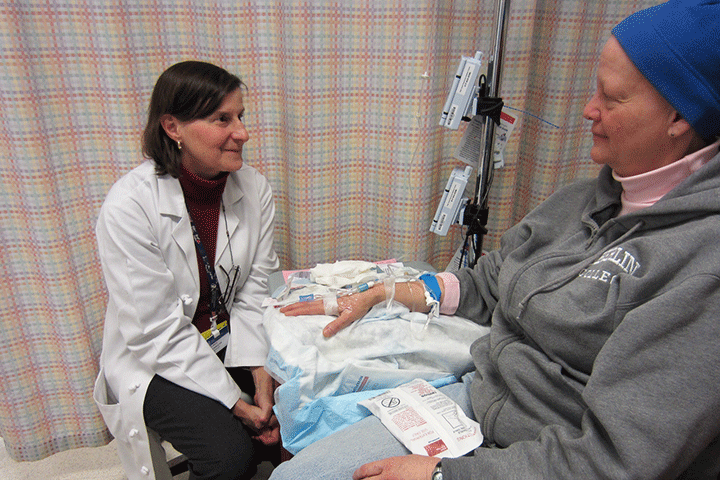Psychosocial Oncology: Helping Patients Manage Stress During Pancreatic Cancer Treatment

Dr. William Breitbart
A pancreatic cancer diagnosis can stress you out, make you feel depressed, even knock you to your knees with fatigue.
But a little creativity can help you regain control. “There’s a whole body of research showing that creative expression helps reduce feelings of depression and improve quality of life for cancer patients,” says William Breitbart, M.D., Chief of Psychiatry at Memorial Sloan Kettering Cancer Center in New York.
The field of psychosocial oncology (also known as psycho-oncology) addresses the intersection of psychological, social, and emotional well-being of cancer patients. What researchers have found is that managing stress effectively is a natural ally in the battle against cancer. Psychosocial oncology taps into this, supporting the body’s ability to fight cancer by reducing stress levels, minimizing anxiety, enhancing immunity. Among the ways to do that include creative expression through the arts. While this may sound like a soft approach for a tough disease, it’s backed by hard science.
Getting Creative to Manage Stress
A growing number of cancer centers are incorporating a smorgasbord of supportive care programs into their treatment efforts—things like art, music, expressive writing, and even movement therapy! Each of these expressive art therapies can help you navigate the cancer journey.
Art. People have turned to art to make sense of their lives since Biblical times. Now this meaning-centered form of therapy is cropping up at cancer centers across the country as a way to reduce stress and anxiety. A study published in the journal Art Therapy, reported that 75 percent of participants experienced lower levels of the stress hormone cortisol while making art. In fact, returning to that childlike sense of creativity and play can be remarkably healing—whether you have cancer or not. It gives you the freedom to express yourself in new ways without judgement or apology.
Music. Scientists have known about music’s healing properties for decades. MD Anderson Cancer Center in Houston introduced a music therapy program for their cancer patients more than 25 years ago and it continues today. “If a patient is anxious or depressed, trained music therapists select music to shift the patient’s mood,” explains Lorenzo Cohen, Ph.D., Professor and Director of the Integrative Medicine Program at MD Anderson. “The more active form of music therapy allows participants to make music, play musical instruments, or put words to music.” This type of music therapy produces a psychotherapeutic interaction that goes beyond the Relaxation Response. It’s a substitute for talk therapy.
Movement. Movement therapy is different than exercise, which has also proven beneficial for pancreatic cancer patients. While research on movement or dance therapy among cancer patients is sparse, Dr. Cohen suspects it produces similar beneficial effects as other forms of expressive art therapy. “Beyond the benefits of increasing the beating of the heart and the circulation of the blood, it allows you to express emotion through dance,” he says. “You also get the benefit of physical movement, which we know is good for your health—whether you have cancer or not.”
Expressive writing. Writing allows you to process your own story, to share challenging thoughts on the page that you don’t want to speak aloud. “Narrative writing helps people cope with the existential concerns that come up with cancer, like the fear of death, sadness over pain and fatigue, and their changing roles in relationships,” says Dr. Breitbart. Research confirms it’s a remarkably effective tool. Data from several studies show that short-term expressive writing over four days, for only 20 minutes at each session, reduces stress, improves quality of life, and may even help cancer patients cope with their illness.
The Big Picture for Psychosocial Oncology
No matter which art form you choose, expressing emotion creatively can help relieve the distress that accompanies an existential threat like cancer. You can even learn how to make meaning out of art by asking questions at the start of the session and seeing what your creativity comes up with.
“Some people would rather sit somewhere quiet and paint or write than express their feelings to a counselor or therapist,” says Breitbart. “The dialogue takes place with themselves rather than another person.”
Your only goal during these sessions is to express emotion—to experience the unique enjoyment of connecting with yourself through creativity. Studies show exploring the arts in this way can help you live better, particularly as you navigate your cancer journey. It may help you live longer, too.





